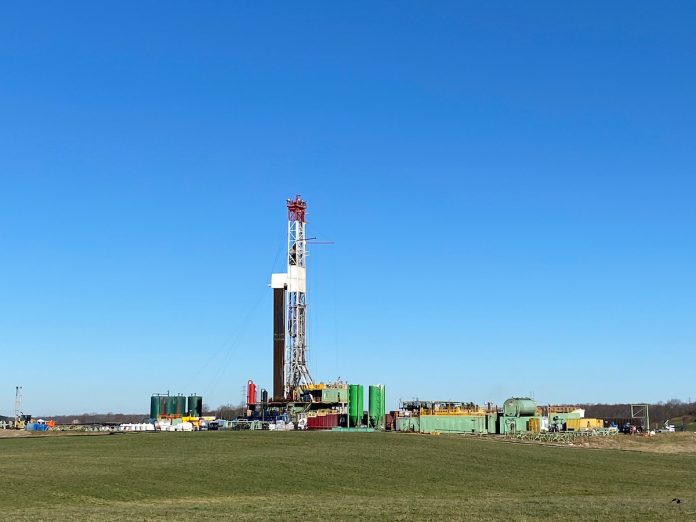The Ohio House version of the 2022-23 state operating budget includes language that would make it state policy to “promote” oil and gas development, exploration and production.
The House also added in provisions to make it easier to lease mineral rights under state lands.
The state’s oil and gas industry welcomed these small, but significant, changes. Environmental groups are concerned about what it means for public transparency and protecting the state’s public lands.
“It’s a thumb on the scale,” said Nathan Johnson, director of public lands at the Ohio Environmental Council. “It slants the playing field dramatically in favor of the industry.”
Back story
Until now, it’s been basically impossible for any state agency to lease its mineral rights for oil and gas development, said Matt Hammond, president of the Ohio Oil and Gas Association.
It’s not that it was illegal. There was just no process for it to happen. The law, signed in 2011 under then-Gov. John Kasich, created the Oil and Gas Leasing Commission. The commission was supposed to oversee any leasing activity on state lands.
The problem, for the oil and gas industry, is that no one was appointed to the commission until 2017. That only happened after the legislature tried, through the budget bill, to take away the governor’s power to control appointments to the commission.
Even after the commission was staffed, the Ohio Department of Natural Resources never promulgated any rules to govern the commission.
Hammond said Gov. Mike DeWine’s administration seems more friendly toward oil and gas, so they took the opportunity to push for some of these changes.
Changes
Under the language put in the House budget bill, the commission would create its own rules, including setting a standard lease to be used by state agencies.
State agencies could then lease public land parcels without consulting the commission. Johnson said these changes basically render the commission obsolete and takes the leasing process out of the public eye.
“It robs the public of those protections,” he said. “If we’re basically announcing a policy of drill, baby, drill in those places that Ohioans really rely on today more than they ever have, for getting out there, getting away, breathing clean air, I think that’s a sad state of affairs that we’re dealing with in Ohio right now.”
According to the bill, the commission would still accept nominations for parcels to be leased and approve bids.
The provisions would allow state leasing revenue to be used more broadly. The current law says those funds need to be reinvested into the public lands. The budget bill would have that money be put into a general administrative fund.
Impacts
The new process would also allow oil and gas companies to submit title work to streamline the process, Hammond said. That’s something the state is required to do now, but the industry is better equipped to do, he said.
The state Senate is still crafting its own version of the budget bill. Hammond said if this language gets through with the final budget, leasing could happen on state lands immediately.
“It won’t be immediately forest, parks, wildlife areas,” he said. “It’s going to be smaller tracts that are out there that producers can’t lease today within a 500 acre unit, that ODOT or ODNR just happens to own 50 acres in that unit.”
In some areas, drilling can’t happen because of private land’s connection to public lands. When natural gas prices recover, it may make financial sense for producers to lease large swaths of land in state parks or state forests, Hammond said.
“It’s [ODNR’s] job to properly regulate it and have strong reasonable regulations,” Hammond said. “If they can say publicly that it’s good enough for private landowners, then they can say it’s good enough for state-owned lands.The state of Ohio shouldn’t hold themselves to a higher standard than they do private landowners in southeastern Ohio.”
(Reporter Rachel Wagoner can be contacted at 800-837-3419 or rachel@farmanddairy.com.)
STAY INFORMED. SIGN UP!
Up-to-date agriculture news in your inbox!










